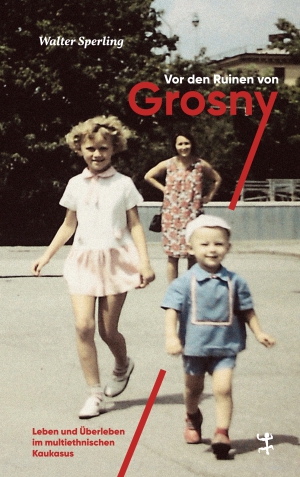"How can we adequately comprehend the Soviet Union as a multinational state which, after all, determined the lives of over two hundred million people for seven decades? How did the multiethnic communities that coexisted in a multitude of Soviet cities live together? In other words, how did the inhabitants of those multiethnic cities learned to trust each other even after the experience of excessive violence – revolution, war, terror, the Second World War? How did they managed to look each other in the eye on the streets and workplaces again? Or were people merely holding their breath in the decades after Stalin’s death while waiting for the ‘end of history’?” The search for answers to these questions led Walter Sperling to the periphery of the former Soviet Union, to Grozny. His history of the city’s everyday reconstructs the struggle between the empire and its periphery, the hegemony of the colonizers and the resistance and mimicry of the colonized, but also illuminates the different forms of political participation and the logics of social integration. First a garrison town and then a booming oil city, Grozny became a socialist construction site after the October Revolution to be targeted, a little later, as a frontline city by the German Wehrmacht. After the deportation of the Chechens and Ingush in 1944 and their return in 1957, this city in the Caucasus did not receive a great deal of attention until the Chechen revolution and the first Russian war against the Chechen republic in 1994. Walter Sperling traces the escalation and radicalization that led to the war. But at the same time, he highlights the efforts by Grozny’s inhabitants to mediate different interests and to build bridges despite conflict. For the elites of this multiethnic and multireligious periphery knew the cost of violence.
Non-fiction
Walter Sperling, born in Karaganda in 1975, emigrated from the USSR to the Federal Republic of Germany in his childhood. After studying history, East European history and Slavic studies at the University of Bielefeld, with stays abroad in Yaroslavl' and St. Petersburg, he received his doctorate in 2010 and became an Akademischer Rat at the Faculty of History at the Ruhr University in Bochum. In 2016, he held a substitute professorship in the history of Eastern and East Central Europe at Ludwig Maximilian University in Munich. In 2018, he was a fellow at the German Historical Institute Moscow.







